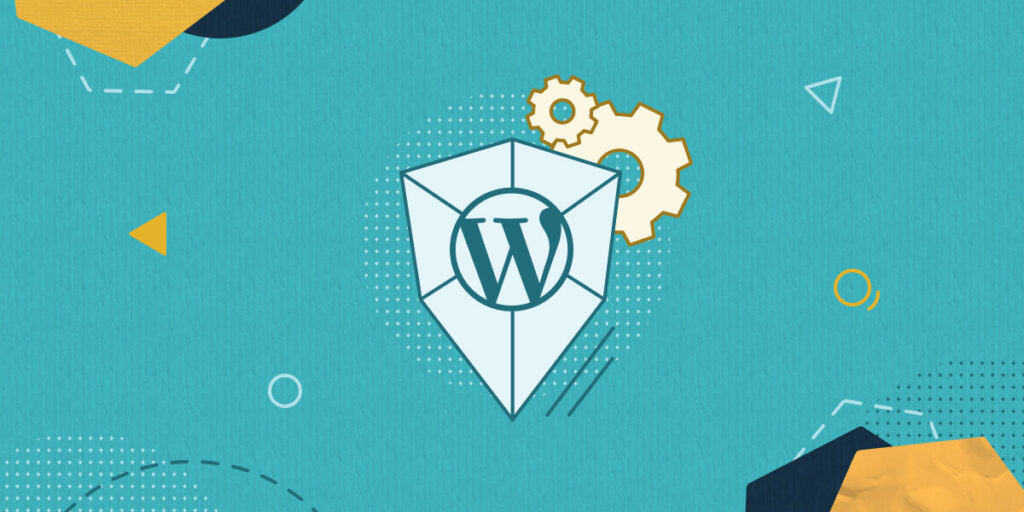A Simple Guide To Securing Your Website:

WordPress is a fantastic platform for building websites, but it’s no secret that it can be vulnerable to security threats. The good news is that the WordPress security team is always hard at work, releasing updates and patches to keep your website safe.
However, there’s more to it than just relying on them. Your role in safeguarding your site is crucial, especially if you use third-party plugins, themes, and other software.
Keep Everything Updated
One of the easiest ways to protect your WordPress site is to ensure that everything is up to date. This includes not only the core WordPress software but also the themes and plugins you use. Security patches often come bundled with these updates, so regularly installing them is like putting on a suit of digital armor.
Regularly Audit Your Plugins & Themes
Plugins and themes are like the supporting cast of your website. They can make or break your security posture. So, here’s what you can do to keep them in check:
Assess Plugin Security
Before you decide to add a new plugin to your WordPress site, do a little detective work:
Check the Install Base: How many people are using this plugin? A large user base usually means it’s safer.
Read User Reviews: Are there positive reviews with a high average rating? If others vouch for it, it’s a good sign.
Developer Activity: Are the creators actively maintaining and updating the plugin? An abandoned plugin is a playground for hackers.
Privacy Policy & Terms of Service: Does the plugin have a privacy policy and clear terms of service? Transparency matters.
Physical Contact Info: Is there a real-world address listed? It adds credibility.
Also, remember to go through the fine print of the Terms of Service; you might find surprises hidden there. If a plugin doesn’t meet these criteria or has recently changed ownership, you might want to think twice about using it.
Remove the Unwanted Stuff
It’s a simple rule: less is more. Unused plugins and themes are like clutter in your attic, only worse because they can expose your website to unnecessary risks. Even if they’re sitting there disabled, they can become an entry point for hackers. So, if you’re not using a plugin or theme, get rid of it. It’s one less thing for cyber troublemakers to exploit.
In summary, while the WordPress security team does a commendable job, you play a significant role in keeping your website safe. Regularly updating your WordPress core, themes, and plugins is your first line of defense. Additionally, be a discerning detective when it comes to choosing new plugins, and don’t hesitate to clean house by removing anything you don’t need.
By following these steps, you’ll be well on your way to a more secure WordPress site.

Why WordPress Security Should Be Your Top Priority
An unsecured WordPress site is like an open door inviting trouble.If you neglect your website security, malicious attackers can swoop in, wreaking havoc. They might infect your website, exploit its resources, steal sensitive data, or, worst-case scenario, take your site offline. In some dire cases, your site could become an unwitting distributor of ransomware and other malicious software, putting unsuspecting visitors at risk. The consequences? A tarnished website reputation, financial losses, and a hit to your search engine rankings. It’s a cocktail of disasters you definitely want to avoid.
2. Protecting Your Visitors Is Non-Negotiable
Think of your online presence as a digital store. Just as you’d lock the doors and have security measures in place to deter thieves, your website also needs robust defenses. Visitors and customers expect a safe and secure browsing experience. For e-commerce websites, the stakes are even higher – you need to uphold PCI DSS Compliance to handle credit card payments securely. Failing to do so can result in hefty fines and the loss of payment processing capabilities.It’s clear: protecting your visitors isn’t just a courtesy; it’s a duty.
3. SEO and the Security Connection
Search engines like Google have a soft spot for secure websites. They consider security a serious ranking factor. For instance, websites with HTTPS encryption get a nod in search rankings. On the flip side, if your site is a breeding ground for malware, phishing, or spam, search engines won’t hesitate to demote it in search results. After all, their mission is to protect their users from digital threats. If you’re aiming for a top spot in search results, you must make WordPress security a top priority. In conclusion, WordPress security isn’t a mere afterthought – it’s the foundation of a successful and trustworthy online presence. Neglecting it can lead to catastrophic consequences, both for your website and your visitors. So, lock those virtual doors, stay vigilant, and make sure your WordPress site is an impenetrable fortress against the digital forces of chaos. Your website’s reputation, financial stability, and search engine rankings depend on it.
